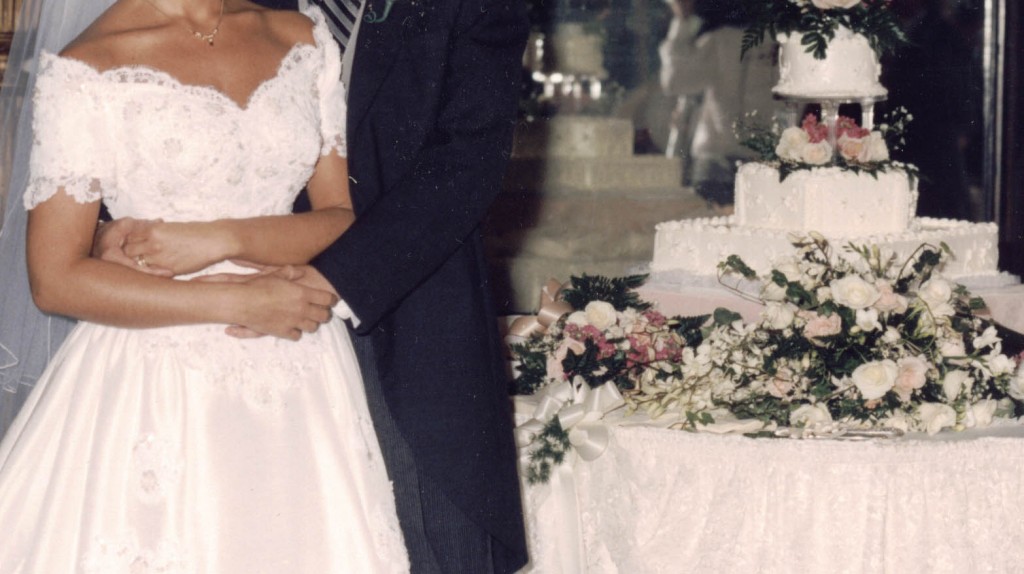Several of the articles published here on PepTalk recently have treated the subject of relinquishing power over those we love. It is a common refrain in polyamorous circles: possessiveness, control, and power-grasping are all harmful to the full expression of one’s love.
For my own part, I couldn’t agree more. Yet at the same time, I find myself struggling at times with relationship definitions – and what expectations are associated with them. It’s quite true, as Robyn writes in this wonderful article on paradigm-shifting, that trying to run a polyamorous relationship based on paradigms from monogamy simply will not work. Yet I’m still left wondering – as  some of my family was when I got married – what exactly does marriage mean in the context of a poly relationship? What are the rules? Do they always have to do with power and possession? Can you make the relationship you’re actually having match the relationship you want to be having, or is surrender to “what is” the only option?
some of my family was when I got married – what exactly does marriage mean in the context of a poly relationship? What are the rules? Do they always have to do with power and possession? Can you make the relationship you’re actually having match the relationship you want to be having, or is surrender to “what is” the only option?
I’ve written elsewhere about setting the rules in open relationships, and the simple fact that every poly relationship or grouping needs to set and maintain its own parameters. Like Robyn, I’ve also philosophized about how difficult it can be to operate outside of social norms and supports. It’s no wonder that when relating becomes difficult, we often fall back on old patterns, just as a threatened animal will revert to its basic fight or flight instincts.
Many of us have a strong desire to control and shape our realities and relationships. The reality as it truly is, though, tends to change around us, and much of the time the only thing we can control is ourselves.
I propose that there needs to be a balance, however, between total surrender to shifting seas, and learning how to take in the sails so you don’t sink. And that taking in often involves taking stock: what do we mean to each other? What does marriage mean to us? How can we go on in a way that makes us all happy?
Most of the population is never called upon to define what marriage means: it means total sexual and emotional fidelity, til death do us part. Most people also find partway in that the ideal is near-impossible to sustain: not everyone opens their relationships, but many cheat, and many more languish in the attempt to have all of their needs met by one other person, forever.
For me, getting married was a gesture of my commitment to one person, to move through life together and promise to try as hard as we could to keep doing that, even when it gets hard. Both of us were already actively poly at the time, and had both even had poly dramas and difficulties along the way. But we stood up in front of everyone we loved and said, “We’re doing this for life.”
It turns out, though, that I still had some unspoken notions about what that meant: We always come first to each other. No major decisions get made without mutual consultation. We are the only ones who wear rings to denote our union. And so on. Many of these mostly-unspoken assumptions were indeed true, but over time, things have shifted, new relationships have been added and subtracted, and one relationship in particular has entered our lives and shifted them somewhat radically.
I am now living in a house with my husband, my husband’s girlfriend, my girlfriend, and my girlfriend’s husband, as my profile states and as I enjoy saying as often as possible to confuse people. Living with my girlfriend and her husband is as easy as I imagined it would be: her and my relationship has always been based in deep friendship and kinship first, sex second, and we have each always understood that our respective relationships with our spouses come first. Moving in together has changed things in only a lovely way: we get to see each other a lot more, and share more of our lives.
My husband’s girlfriend, though, is quite a bit more than that to him: a co-primary, if you will, and the three of us are in the midst of ongoing negotiations about what it all means now that we’re living in the same house.
I can see, at the other end of surrender, the beauty and magic that is possible here: three loving adults, shared experience, shared child-rearing, mutual support, and the way she has of making all of us a bit better.
In the present, tho ugh, I’m struggling mightily with what this means for my marriage. What rights do I have? What am I giving up? And the question again: what does marriage even mean?
ugh, I’m struggling mightily with what this means for my marriage. What rights do I have? What am I giving up? And the question again: what does marriage even mean?
While I feel that ultimately, the surrender is important, I also firmly believe that part of the road to that surrender is dropping sail – taking stock, figuring out definitions, reminding ourselves what it is we agreed to and seeing if it still holds, and if so, how all of that translates into how we behave with each other. I agree with Robyn that halting other relationships while doing this is a mistake: the true will of everyone involved is more important, and any kind of “shoring up” of a relationship needs to take place in real time, within real conditions. But I do see the value in defining couplehood as separate from, if not superior to, a group relationship – particularly if the sexual and romantic connection does not run all the way around.
All of this is by way of redefining, too: what do I need from him? What does he need from me? Can we, realistically, deliver those things? Are the losses I may be imagining simply that: imaginings? Or am I making a sacrifice that I need defined before I can truly agree to it?
It’s difficult to look at this, though, as anything other than establishing power dynamics: who gets the last word? Who’s in charge? Who will really come first, if it comes down to it? What does couplehood and marriage mean, outside of ownership and control of another’s actions of the heart?
In the end, tho ugh, it’s not fantastically useful to look at it that way. Ultimately, even if we agreed that we have that power over each other, eventually, the one who was said “no” to will follow his or her true will, and thus break the agreements of the relationship. Basing a relationship on who ultimately “wins” is therefore nearly always a recipe for loss: it’s easy to feel betrayed when your loved one breaks agreements made out of possession and fear. Rather, it seems the key is about drawing healthy boundaries that achieve the right balance of making us all feel safe, and making us all feel loved.
ugh, it’s not fantastically useful to look at it that way. Ultimately, even if we agreed that we have that power over each other, eventually, the one who was said “no” to will follow his or her true will, and thus break the agreements of the relationship. Basing a relationship on who ultimately “wins” is therefore nearly always a recipe for loss: it’s easy to feel betrayed when your loved one breaks agreements made out of possession and fear. Rather, it seems the key is about drawing healthy boundaries that achieve the right balance of making us all feel safe, and making us all feel loved.
Gaining an understanding of those things in real time is one of the great challenges of poly relationships, and many days, I’m still waiting for that voice inside me that keeps yelling But I’m the wife! to die down. Listening to it, hearing what it’s really after, is the only option here: squashing it in favor of more noble philosophical ideals will never work. But the good news is that what that voice seems to really be after is greater love and deeper commitment, not grasping until things break.
OCT





Thank you for your insights! Very interesting and thought-provoking article.
I admire the inquiring and vulnerable tone of your article.
Peace,
Chris
What an excellent piece of writing, and what interesting timing. It is especially useful to me and my fiance (who is also my poly partner of six years) as food for thought since we will be married in December. I will invite him to talk about some of the sensible questions you raise here.
Our reasons for marrying are much as you illustrate in the positive sense, i.e. that no matter who else comes into our lives, we are each others’ life partners, and we want to share each other’s lives and be each other’s steady and available anchor when life gets tough. Making a public commitment has real meaning for us in that sense, especially because we weathered a major crisis a year ago that ultimately brought us much closer together with a newfound trust in and love for each other. Many of our loved ones know how close we came to losing each other, so our wedding will be a celebration of an abiding love’s triumph over emotional pain and sorrow.
A note on whether relationships should be closed when enduring a serious challenge, I agree with your and Robyn’s thinking, but only to a point. I think there has to be a compelling reason for ending or putting on hold other cherished relationships and partners. First of all, it’s painful for all concerned to do that, and that’s not what I’d call love. On the other hand, some situations are dire enough that they require our full attention (plus the help of one or more therapists in our case) in order to heal hurts and betrayals and restore it to a solid foundation of love and trust.
I discovered in my poly travels that it’s important to talk to my partners about what kinds of things could happen that could necessitate cutting back on time together, i.e. if an anchor partner or another loved one has an accident or becomes seriously ill and needs more of our time and attention, for example. I’m sure we can all think of other life challenges that could result in having to scale back, however much we may regret the necessity of it.
Now that my fiance’s and my relationship is on solid ground and we can joyfully celebrate our love for each other with our family, friends and beloveds, we will be open to engaging with others. But we will also be transparently communicating every step along the way with each other and everyone else concerned and hopefully thereby avoiding future painful relationship disruptions.
I am in a similar relationship. I live with my gilfriend and her husband. It is give and take. He satisfies her intelectual side and I take care of her sensual side. There have been difficult times as we are adjusting to this new relationship. But we all make sure that each is happy, and if not, we find a way to fix it. I never thought I would live this lifestyle. But I am finding it amazing, everyone should try it.